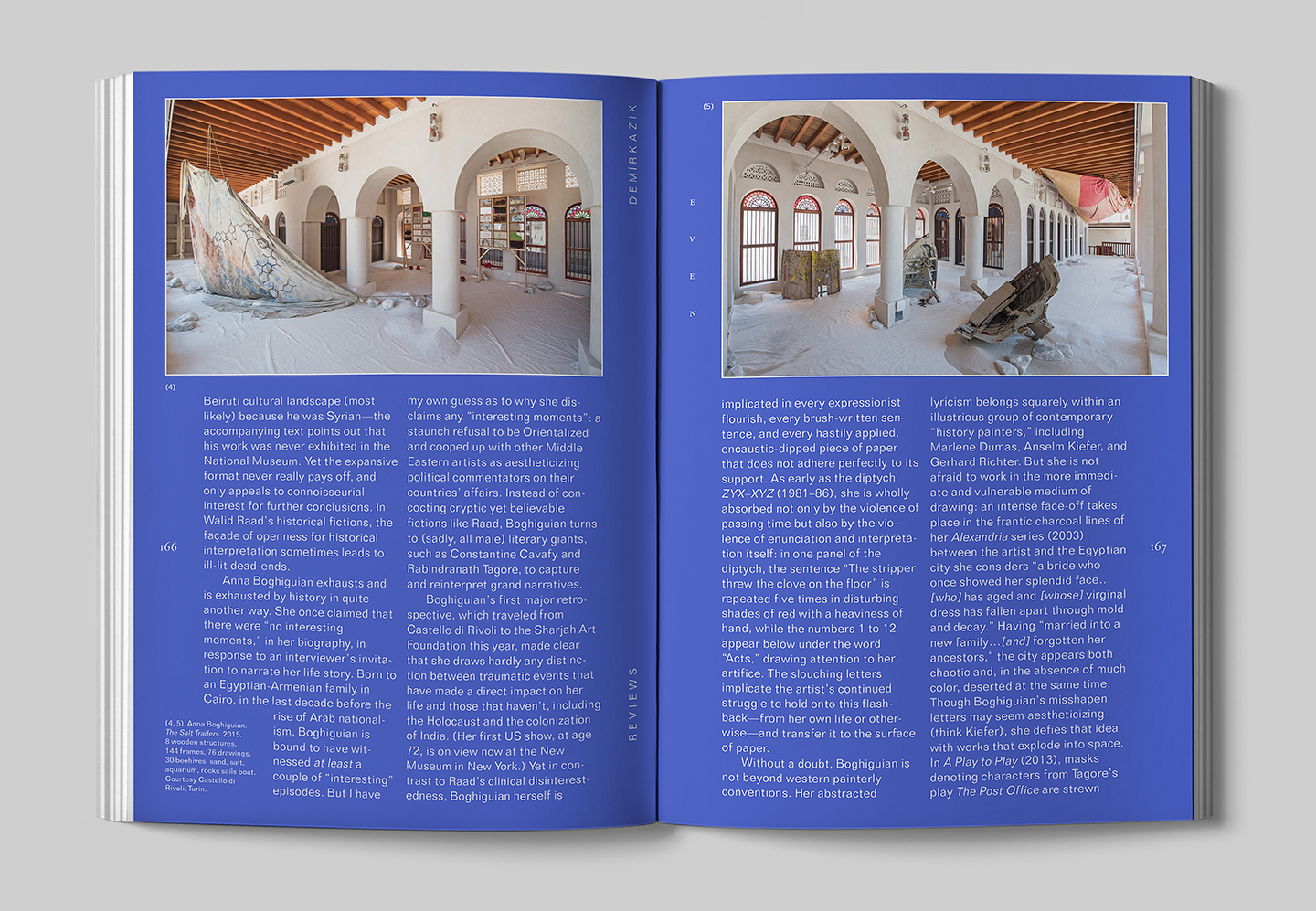A Thing of the Past
by Gökcan Demirkazık

I often hear people visiting the Middle East—whether they’re in Beirut, Istanbul, Ramallah, or Tehran—say that artists here are blessed to have so much to explore. Lucky you, they tell me: the hot topics, critical issues, and points of conflict are virtually endless! Most of these budding Orientalists leave without finding out that artists in the Middle East today struggle to make “relevant” work for a global audience—unless they simulate the politically engaged practices of their predecessors. In the absence of sustainable cultural institutions or state support for artists, a few commercially successful artists from the region have been automatically singled out as one-person “schools” to follow. And when there is a critical mass of such artists with comparable approaches and concerns, their city puts on a corsage and is escorted by an “international curator,” or less customarily by a writer for a major arts publication, to the never-ending debutante ball of art scenes from the global south, signaling it has arrived on the global arts stage.
After almost two decades of some very successful international survey exhibitions, which have sought to map critical artistic practices from Beirut, the city is still the belle of the ball. (“Home Beirut,” with three dozen artists, just finished its run at the Rome museum MAXXI.) While this exhibition format has its origins in the optimistically globalist 1990s and was particularly influential throughout the 2000s, its ramifications are by no means over. Suzanne Cotter, a former senior curator of Modern Art Oxford, wrote for the catalogue of her 2006 show “Out of Beirut”: “Many artists from Beirut talk of…the challenges of reflecting on a present haunted by the past and overshadowed by an uncertain future…The inscription of the personal in relation to ‘events,’ by way of photographic document and the archive, is one of the most compelling and consistently interrogated forms used by artists coming out of Beirut.” Her words still hold true today....